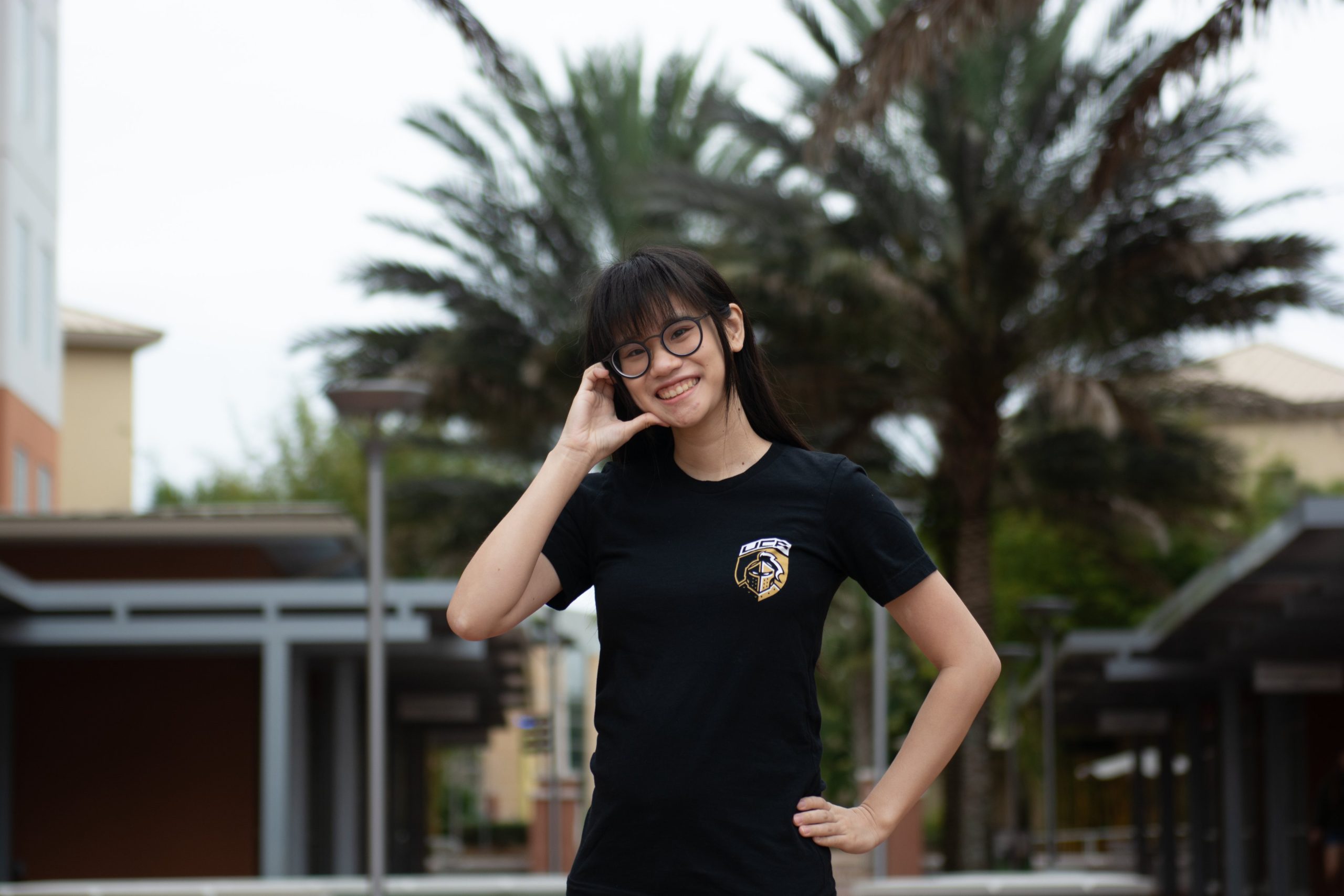
It’s not uncommon for new graduates to hit the pavement, degree in hand, in search of a new job. That’s not the case for Tiffany Do. The computer science doctoral student not only has a job waiting for her, but a coveted one that many in academia aspire to for many years before it is offered. Do will be a tenure-track assistant professor of computer science in the College of Computing and Informatics at Drexel University in Philadelphia this fall.
“I’m excited to lead my own research agendas and mentor my first Ph.D. student,” she says. “I think it will be a lot of fun.”
Do wasn’t sure she wanted a career in academia when she first started out. When she joined UCF in Spring 2020 to pursue her Ph.D., she was motivated by a quality that unites all engineers: curiosity.
“I went for a Ph.D. because I had way too many questions and not nearly enough answers,” she says.
Do’s research areas — human-centered artificial intelligence (AI), augmented reality, virtual reality and virtual avatars — give her many opportunities to not only seek out answers, but to develop innovative solutions.
“My research explores the potential of AI to personalize experiences, emphasizing the importance of unique identities and perspectives,” she says. “AI has the power to tailor systems to meet the specific needs of each user. I envision a virtual world where personalized computing enables everyone to reach their maximum potential.”
Do has already made an impact in her field, even before officially earning her Ph.D. Her publications are being read and referenced by other researchers.
One of the world’s foremost conferences in virtual reality, the Institute of Electrical and Electronics Engineers Virtual Reality Conference, recognized her work, “Stepping into the Right Shoes: The Effects of User-Matched Avatar Ethnicity and Gender on Sense of Embodiment in Virtual Reality” with a Best Paper Honorable Mention Award. Her research has been cited more than 100 times on Google Scholar. With an h-index of 6 and i10 index of 4 – measures of productivity and quality that assess a researcher’s overall impact – it’s clear that Do is already making a name for herself.
“I knew I wanted to go to a place where I could make a big impact,” Do says. “My time at UCF showed me that I have a passion for mentoring and teaching alongside research, so academia seemed like the perfect fit for me.”
She was able to get a taste for research in industry working for Microsoft Research and Google, taking two semesters of leave from her Ph.D. studies. It was the perfect opportunity for her to see the possibilities for how her work could be applied outside the lab.
“It was an amazing experience, where I learned so much and had the time of my life,” Do says. “I got to see how my research could be used in cutting-edge AI technologies and caught a glimpse of how our world might look in the future.”
As Do worked toward her degree, she also made time to give back to the UCF community.
Do volunteered at her time at the college “loop” or chapter of Girls Who Code, joining as a co-founder and helping establish the loop alongside its president.
“Together, we helped build a great club and ran workshops on everything from Introduction to Git to Technical Interview Prep and Career Tips,” she says. “Connecting with and mentoring other women in computer science was incredibly inspiring, and I’m excited to keep being involved in the future.”
Do also lent her talents in marketing to Esports at UCF as a longtime League of Legends player, editing reels and helping develop their brand.
“I found working with Esports to be a fantastic way to blend my passion for gaming with some fun behind-the-scenes action,” says Do.
As she prepares for life in academia, Do is ready to embrace her role at Drexel University. She says her lab mates, family and friends were there for her throughout her Ph.D. journey and that she is grateful for their support.
“They were my greatest hype-people, motivating me to believe I could achieve amazing things,” Do says. “I wouldn’t be here without them.”
Story by Bel Huston, UCF College of Engineering and Computer Science